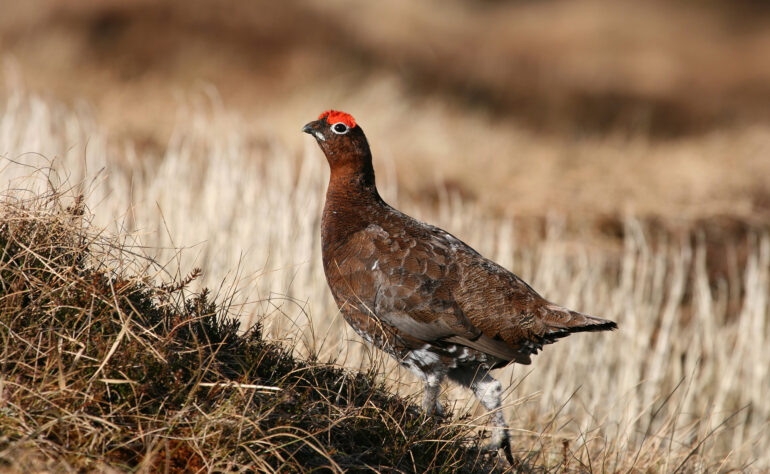Grouse moors remained largely silent for yet another challenging year, as the shooting industry faced its fourth consecutive season of low grouse numbers, fuelled by the impacts of climate change and increased parasite and disease challenges.
However, this did not stop the ‘circle of destruction’ that surrounds the controversial industry, with some grouse moors doubling down on intensive management in a desperate attempt to drive game bird numbers back up.
The mass burning of heather which poses a serious environmental risk at a time of climate crisis continued unabated, in some cases resulting in communities being submerged in smoke pollution. All to facilitate more sports shooting of grouse.
The relentless trapping, snaring and killing of hundreds of thousands of birds of prey, foxes, stoats, weasels, crows and other wildlife – solely to enhance the prospects of shooting more grouse for sport – marched on, heedless of growing concerns.
The deployment of tens of thousands of medicated grit stations on grouse moors to artificially inflate grouse numbers showed no signs of letting up. But amidst this concerning situation, it’s clear that significant change for the future of our uplands is afoot.
Wild Moors has continued with its ambition to unlock an area of the UK’s uplands the size of Greater London for regeneration by 2030, supported by changes from some of the country’s largest landowners.
The National Trust announced the cessation of grouse shooting at Park Hall in the Peak District, instead opting to embark on the moorland’s restoration for the benefit of nature, the climate and people.
Meanwhile, United Utilities, England’s largest corporate landowner, committed to ending grouse shooting on its water catchments across the north west, initiating a review in the New Year to inform the next steps for this policy on its expansive upland estate.
Scottish Water followed on by pledging not to issue any new grouse shooting leases, with its final lease to be reviewed ahead of its expiry in 2027.
Moorland buyouts for nature restoration continued to gain momentum, with acquisitions like the Dalnacardoch Estate, Invergeldie Estate, and Blackburn & Hartsgarth moors by a portfolio of conservation organisations actively contributing to nature and climate objectives.
In a historic move achieved by numerous nature and wildlife protection organisations, the Welsh Government enacted a complete ban on snaring, setting a strong precedent for the entire UK. The Scottish Government has since committed to doing the same.
Legislation to licence grouse moors also progressed through the Scottish Parliament, providing new powers to shut down those shooting estates linked to wildlife crime and environmental damage. Encouraging progress was made in Westminster, too, with proposals to licence grouse moors in England gaining support from Labour, the Liberal Democrats and Green Party.
It’s with that spirit of hope and opportunity that we mark the end of the year. Thank you to everyone who has supported Wild Moors in 2023. We hope that grouse moors will be replaced by wild moors, sooner rather than later.
2023 in review — thank you for helping to create Wild Moors
